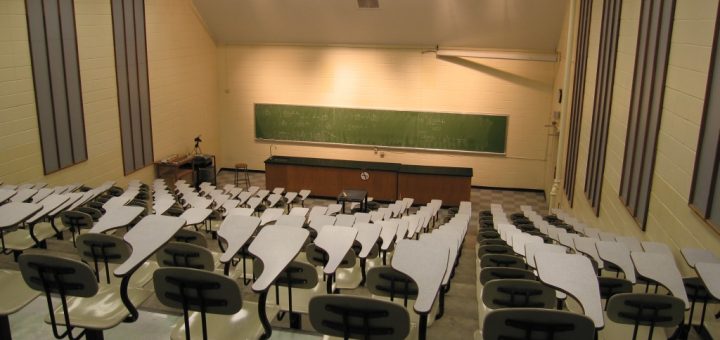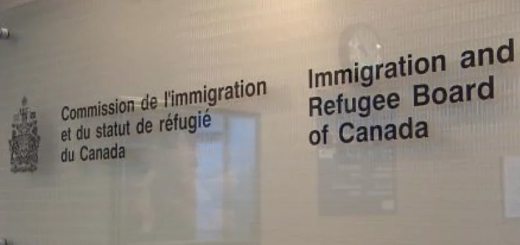Students’ Rights Carved into Canada’s Copyright Regime: The SCC Affirms the Importance of the Student Perspective in Canada’s Copyright Policies

On July 30, 2021, the Supreme Court of Canada (“SCC” or “the Court”) affirmed students’ rights in York University v Canadian Copyright Licensing Agency (Access Copyright), 2021 SCC 32 [York University]. In a relatively short decision, the SCC distills almost a decade of conflict into a dismissal of both parties’ appeals, while simultaneously disagreeing with the lower courts’ analysis of the fair dealing exemption. For those unfamiliar, fair dealing is a statutory exemption that allows certain types of copying of otherwise copyrighted work to occur lawfully for public policy purposes.
The decision ultimately benefits public policy, bringing students’ perspectives and rights to education under copyright law’s fair dealing exemption. However, both parties to the matter were left unfulfilled with the decision. Copyright collectives like Access Copyright are now scrambling to determine how they can continue representing authors’ rights and collect compensation on their behalf. Meanwhile, York University was unable to secure a declaration affirming its fair dealing policy for copying as falling under the statutory fair dealing exemption.
Background
Prior to the SCC decision, Federal Court judges grappled with issues of fair dealing, institutional copyright guidelines, and the compulsoriness of tariffs totalling up to tens of millions of dollars. The two parties to the dispute were Access Copyright and York University. Access Copyright is a copyright collective that represents the works of creators and publishers and licenses its repertoire to various institutions in exchange for a set royalty. York University is a Canadian public university located in Ontario.
Conflict first started when Access Copyright proposed to raise its tariff costs from $3.38/student plus $0.10/page copied from 1994-2010 to a $45 flat rate per student in 2011 (York University, paras 5 and 7). The significant increase in tariffs would be heavily felt by educational institutions like York University, which make high volumes of copies daily due to its large student population. When the proposed tariffs were first imposed, over 100 institutions and individuals filed objections (York University, para 9). The parties failed to finalize negotiations, so an interim tariff was imposed based on the pre-existing tariff scheme.
While York University originally continued to pay the royalties throughout their conflict with Access Copyright, in July 2011, the institution informed Access Copyright that it would not continue as a licensee. York University stopped paying tariffs altogether but continued to copy works from Access Copyright’s repertoire by relying on the fair dealing exemption (York University, paras 10-11). As a result, Access Copyright applied to the Federal Court to enforce York University’s payment of the outstanding tariffs (York University, para 14).
Meanwhile, York University counterclaimed against Access Copyright, citing their copying as falling under the fair dealing exemption because of the educational nature of their actions. In a further step, York University also sought a declaration from the Court that any copying done at York University under its “Fair Dealing Guidelines for York Faculty and Staff” (“the Guidelines”) falls within the fair dealing exemption (York University, para 15).
Decision History
In York University, the SCC had to distill the complex arguments and evidence accumulated over years of litigation. For a clearer understanding of the SCC’s decision, it is important to explore the decision history of the case.
Federal Court (“FC”) Decision
In Canadian Copyright Licensing Agency v York University, 2017 FC 669 [FC Decision], the Federal Court encountered two live issues. The first issue was whether the interim tariff was enforceable against York University as a licensee. The second issue was York University’s counterclaim seeking a declaration that its Guidelines were fair under section 29 of the Copyright Act, RSC 1985 c C-42 [the Act] (FC Decision, para 5). Per section 29 of the Act, “fair dealing for the purpose of research, private study, education, parody or satire does not infringe copyright”.
The FC determined that the interim tariff was mandatory and enforceable against York University under section 66.51 of the Act. The tariff was found to be mandatory within the ordinary meaning of the word “tariff”, as well as in the scheme and legislative history of the Act (FC Decision, para 11). York University was a participant in the negotiation, was aware of the interim decision and therefore could not escape the tariff’s enforcement (FC Decision, para 13).
For the fair dealing counterclaim, York University’s actions were not deemed as “fair” in the two-step test for fair dealing set by the SCC in CCH Canadian Ltd. v. Law Society of Upper Canada, 2004 SCC 13 [CCH]. While York University passed the first step, which requires fair dealing activities to fall under “purpose of research, private study, education, parody or satire” per section 29 of the Act, York University’s actions were not found to be “fair” under the six factors delineated in CCH (FC Decision, paras 15 and 21; CCH, para 53). The six factors outlined in CCH are:
(1) the purpose of the dealing;
(2) the character of the dealing;
(3) the amount of the dealing;
(4) alternatives to the dealing;
(5) the nature of the work; and
(6) the effect of the dealing on the work (CCH, para 53).
On these facts, the FC stated that the proper measure for “fairness” in the factor of “the amount of the dealing” was the overall number of copies made rather than copies per full-time student (FC Decision, para 17). In other words, it was the institution’s overall usage of copyright-protected works that mattered when assessing fairness.
Federal Court of Appeal (“FCA”) Decision
In York University v Canadian Copyright Licensing Agency (“Access Copyright”), 2020 FCA 77 [FCA Decision], the FCA allowed York University’s appeal and found that the licensing tariff was not mandatory for the school. The FCA arrived at this finding because York University was no longer a licensee. Per the FCA, liability for royalties and liabilities for infringement damages are different (FCA Decision, para 38). Liability for royalties only arises when a party is a licensee to the collective, which is a consensual relationship (FCA Decision, para 53). York University was no longer a licensee, so the correct recourse for Access University should have been an action for infringement damages for infringing use of its repertoire.
The FCA affirmed the FC’s decision that the fair dealing exemption did not apply. They similarly stated that the user’s perspective for the fair dealing analysis was the institution’s perspective because the issues surround the general practice of copying happening at York University. As an institution, York University’s amount of dealing was considered unfair (FCA Decision, paras 238 and 283).
After the two lower court decisions, the appeals before the SCC were twofold:
(1) were the licensing tariffs mandatory for York University to pay, as a user of Access Copyright’s repertoire?; and
(2) were York University’s fair dealing guidelines protected under fair dealing rights to receive a declaration affirming so by the court?
SCC Decision
Notably, the SCC engaged in an analysis of York University’s defence of fair dealing, despite finding no live issue between Access Copyright and York University because the tariff was found unenforceable (York University, paras 79 and 83).
The SCC disagreed with the method of analysis undertaken by the FC and FCA, which focused too closely on the institutional perspective as the user, rather than the student perspective as the user of copyright-protected material (York University, paras 87-89).
Ultimately, the SCC dismissed both York University’s and Access Copyright’s appeals from the FCA. Access Copyright’s tariffs could not be imposed on a non-licensee who did not agree to the tariffs and York University could not secure a declaration affirming its fair dealing guidelines as falling within the fair dealing exemption.
Given that the tariffs were non-enforceable against York University, Access Copyright could not pursue further remedies. Access Copyright, as merely a copyright collective that collects tariffs, is not an exclusive licensee that can pursue infringement damages on behalf of its members (York University, para 74). In absence of a live issue, York University’s defence and counterclaim of fair dealing ordinarily would not have been assessed by the SCC.
However, in explicit criticism of the lower courts’ analysis of fair dealing, the SCC stressed the importance of copyright balance between authors and users, which was not appropriately considered in the trial and appeal decisions of the case (York University, paras 89-92). In modern jurisprudence, courts have interpreted the primary goal of copyright as to provide the public with tools and knowledge to generate works of their own (York University, para 92 citing Théberge v. Galerie d’Art du Petit Champlain inc., 2002 SCC 34, at para. 32). Therefore, the overall end-user of the copyright-protected works must be considered, which in this case, was both the institution’s perspective and the students using the copies in their studies (York University, paras 98-103).
Analysis
The SCC’s decision in York University progressively incorporates policy considerations for striking a balance between author-rights and user-rights. It was clear from the SCC’s choice to engage in further analysis that the Court sought to correct the lower courts’ jurisprudence in only choosing to engage with the institution’s perspective in fair dealing for educational matters.
Importantly, the SCC’s unanimous affirmation of the “student” as a relevant user in users’ rights for the fair dealing exemption sets a strong framework for future issues involving education and copyright. In a way, this decision solidified the majority’s analysis in the split decision in Alberta (Education) v Canadian Copyright Licensing Agency (Access Copyright), 2012 SCC 37 [Alberta (Education)], where the SCC split in their decisioning on the character and “fairness” of the dealing under the fair dealing analysis. In Alberta (Education), the majority followed the decision in CCH to apply a “large and liberal interpretation” for allowable fair dealing purposes (CCH, para 51) and found that “research” was not limited to non-commercial or private contexts (Alberta (Education), para 19). Underlying this reasoning was the concern that a narrow reading of the statutory fair dealing exemption would “lock out” users whose actions would appear “fair” by a matter of impression and hurt the dissemination of knowledge (Alberta (Education), para 37). In York University, the concern to achieve copyright balance between author-rights and user-rights was stated more explicitly and supported by a unanimous decision.
A remaining concern over the York University decision is that other educational institutions like York University may be encouraged to opt-out of paying Access Copyright tariffs as well. York University, being the third largest educational institution in Canada, would have needed to pay over two million dollars to Access Copyright to continue using its repertoire as a licensee (York University, paras 3 and 7). Millions of dollars in tariffs are now at-stake after the York University decision. Indeed, Access Copyright released a statement after the SCC’s decision, citing concerns over fair compensation for creators of works used by educational institutions and the undermining of collective licensing.
In the future, similar litigation may also continue as institutions seek certainty in their fair dealing guidelines for copying (similar to the declaration York University had sought). It will be interesting to see if courts will become involved in this issue once more as copyright law in Canada struggles to find the appropriate balance between author and user rights in the context of education.
Conclusion
The SCC’s decision in York University cemented Canada’s perspective on the balance between the protection of authors’ rights and users’ rights in education despite the balance not being a live issue anymore. The importance of students’ access to education through reproducing academic excerpts fits directly into the purpose of copyright, which is to support the public in generating works of their own. Reproducing academic excerpts provide students the tools to go on to generate their own academic works and research.
The SCC’s refusal to get lost in the weeds of finding the identity of the user in a fair dealing analysis (whether it is the institution or the end-user) demonstrates the importance of balance as the end-goal when resolving copyright disputes involving fair dealing. Under the purpose of education, students’ rights to access materials for research and learning (whether requested individually or at the discretion of a professor) are essential to the development of human knowledge. As jurisprudence continues to develop around fair dealing, education, and copyright balance, it is reassuring to see the SCC’s commitment to protecting the dissemination of knowledge to the public so that the cycle of knowledge creation may continue.







Join the conversation